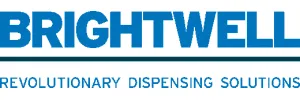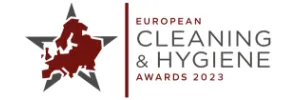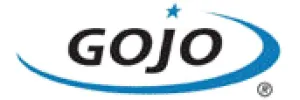News & Insights
Read the latest news from us and our clients across the globe

Posted on 20 June 2014 by adtrak.admin
Lessons in procurement
The education of students and pupils is the primary concern for schools and colleges, but running an educational establishment takes much more in terms of staffing and services – with the delivery of effective cleaning provision high on the list of priorities. Carl Robinson, marketing manager for cleaning specialist Nviro, gives advice on procuring cleaning contractors for the education and higher learning sectors.
Educational establishments have a duty of care to their pupils, students and staff that reaches far beyond the provision of teaching and training. From primary schools to universities, and all permutations in between, pupils and students can only learn effectively if they are in a place that also enhances their well-being. This means that learning environments have to be safe, warm and hygienically clean, so the management and on-going maintenance of educational facilities is of paramount importance.
Like many other sectors, education has been subject to changes and financial pressures in recent years. Debates over tuition fees and the emergence of academies and ‘free schools’ are just two of the biggest issues. As the ‘age of austerity’ continues, those that manage educational facilities must strive to secure the highest quality support services that also deliver the best value for money.
The Department for Education (DfE) published ‘Effective buying for your school’ in March 2014, offering guidance to school leaders, school business managers, back office staff and governing bodies in all schools. Advice covers planning, buying and managing contracts, together with areas for potential savings, such as energy, food, administrative supplies, temporary staff, information and communication technologies (ICT) – and facilities management. In the document, the DfE states that facilities management includes services such as cleaning, caretaking and grounds maintenance. It also includes improvement of buildings and/or their maintenance, and water and sewerage. In addition, it emphasises the importance of ‘buying green’ and keeping sustainability in mind when procuring products and services, something that is having a significant effect on all sectors – not just education.
A master class in cleaning
Schools, colleges and other seats of learning are busy places, in and out of ‘normal’ hours. Thanks to the wealth of space and facilities on offer, they have become hubs for the wider community, hosting activities such as breakfast or homework clubs, summer schools, and even corporate events. This means that any cleaning regime needs to be thorough and regular enough to deliver the high standards required, but also discreet, keeping disruption to a minimum, especially when classes or exams are taking place.
As cleaning will often take place when the building is being used, machinery and equipment needs to be quiet and unobtrusive, with cordless models being favoured to improve health and safety by reducing the risk of trips and falls. Another way to increase the safety of pupils and students is to ensure that only properly qualified and security-checked people are allowed to work on site. Any cleaning contractor with a good track record in providing cleaning for educational establishments will be able to prove that the correct procedures are in place.
A healthy environment
Improving attendance levels is something that is important to educational establishments, as this helps to ensure there are no gaps in the learning process, and course work is completed on time. A good cleaning regime can help to reduce absenteeism through illness – for staff as well as pupils and students – by incorporating common sense infection control methods within the routine. This not only helps to improve learning outcomes for young people, it also saves money for schools by negating the need to engage supply teachers, to cover absences within the academic staff.
Consistent and effective day-to-day cleaning will obviously include vacuuming, dusting, emptying bins and wiping down surfaces, ensuring that surfaces not only look pristine but germs are wiped away. However, bacteria lurk in many different places, with IT equipment being a prime example. Food debris, hair and skin particles, dust and germs can gather on keyboards, tablet computers and touch screens, so cleaning regimes should cover equipment such as this.
Computers are regularly touched by hands, which are one of the most frequent transmission routes for many types of infections, because they come into direct contact with the mouth, nose and eyes. As well as encouraging pupils, students and staff to wash their hands regularly, especially after using the toilet and before eating, the cleaning of IT equipment should undoubtedly be a priority.
Cross contamination is another concern. When choosing your contractor, always check to ensure that members of staff are properly trained for the job in hand. Ideally, this means using colour-coded equipment to ensure that items used to clean washrooms are not used in food preparation areas, as well as knowledge of HACCP (Hazard Analysis and Critical Control Point) procedures.
Green cleaning on the curriculum
Educational establishments, like many other organisations, are keen to reduce the negative impact their activities can have on the environment, and introducing ‘green’ elements to the cleaning regime is a step in the right direction. This is something that Nviro specialises in, as shown through its work with the University of Portsmouth.
The University of Portsmouth comprises 46 separate buildings that play host to 19,000 undergraduate and post-graduate students, supported by 3,000 staff. The usual challenges posed by educational establishment contracts, such as working around a busy academic schedule across an array of different buildings and environments, apply here. However, the key point of difference is the importance placed on cleaning without chemicals.
John Carns, contract manager at the University of Portsmouth, explains: “The University is extremely keen to prove its environmental policy. Other than the introduction of chemical-free cleaning, my team and I have been heavily involved in the introduction and implementation of the recycling waste policy introduced by the University in April 2013.”
As part of this approach, in spring 2012 HTC Twister Pads were introduced, with pulse mops, microfibre mop systems and microfibre cloths following in March 2013. This equipment has removed the need to use hard surface and washroom cleaning chemicals, thus eliminating risks to operatives’ health, and damage to surfaces caused through incorrect dilution. “I am hoping to replace toilet cleaner and limescale removers with chemical free stainless steel and glass cloths,” continues Carns. “It is also my intention to reduce chemical use to one other product – a green carpet shampoo, by the beginning of September 2014.”
The introduction of chemical-free cleaning can be difficult within any cleaning contract; mainly because it’s a common misconception that if you can’t smell disinfectant, then an area isn’t clean. However, once these barriers are broken down you can begin to help people understand the processes and how new products and methods work. Creating an environment that is both clean, safe and ‘green’ is possible, and Nviro will continue to work with its education clients, and those in other sectors, to make this happen.
Published in Tomorrow’s FM – June 2014
Experts in Public Relations Services & Communications Management
Our ServicesGenuine industry specialists in cleaning and hygiene, environmental and recycling, and facilities management
Our Sectors












